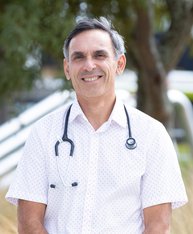

Navigating through the changes to CPD/recertification in Aotearoa
New Zealand

Regulators in both Aotearoa New Zealand and Australia have approved changes to Continuing Professional Development (CPD) requirements. In November 2019, the Medical Council of New Zealand (MCNZ) released its strengthened recertification requirements for vocationally-registered doctors in Aotearoa New Zealand. The purpose is two-fold; to encourage completion of more activities that have an evidence-based impact, and activities encouraging reflection on practice and patient outcomes.
In response, the College is evolving the MyCPD Framework to help Fellows meet these regulatory changes. The new Framework will strengthen the existing system and, for those in Aotearoa New Zealand, introduce new mandatory CPD activities.
What will the minimum core CPD activities be in Aotearoa New Zealand?
The MCNZ has released its strengthened recertification requirements for vocationally-registered doctors in Aotearoa New Zealand. The following annual minimum core elements will be mandated by the MCNZ and the College from 2023 onwards:
- Doctors must complete a mix of activities across all three categories of CPD; educational activities, reviewing performance and measuring outcomes.
- Doctors must have a structured conversation with a peer, colleague or employer at least annually.
- Doctors must develop and maintain a professional development plan (PDP) each year.
- Cultural safety and a focus on health equity must be embedded within all of the above activities.
For some time, it has been recommended that practitioners develop PDPs as part of their CPD activities and this will become compulsory from 2023.
This plan allows practitioners to take the time to reflect on their current practice and what they really want to achieve or improve. A good plan
should be a circular process and enable doctors to identify any developmental/educational needs and set goals, finishing with self-assessment and reflection on the outcomes.
Similarly to a PDP, the intent of completing a structured annual conversation
is to allow practitioners to reflect on their development needs and intentions for the next year. But this must be conducted with peers, colleagues or an employer who knows the reviewee's work. It is an opportunity to receive constructive feedback and explore job satisfaction, self-care, and any health and wellbeing issues so practitioners are able to adjust their practice accordingly (MCNZ, 2019).
Putting CPD into practice: A member’s perspective
We invited Dr Danny de Lore (Ngāti Tuwharetoa) to discuss the changes and how they affect him in his practice. Dr de Lore is a general paediatrician at Rotorua Hospital in Aotearoa New Zealand. His areas of interest include Māori health, medical education and paediatric diabetes. He is an Honorary Lecturer at the University of Auckland School of Medicine. Dr de Lore is a member of the Aotearoa New Zealand CPD Committee and is one of our Indigenous strategic partners. He is the Chair of the working group that developed the RACP statement on Indigenous child health in Australia and Aotearoa New Zealand.
Thinking about how the regulatory changes will affect his current practice and CPD activities, Dr de Lore says, “the main difference will be trying to embed cultural safety and health equity into all CPD activities. I’ll also have to spend more time on working out how to measure my own performance.”
Submitting CPD can be a stressful task but planning ahead and encompassing it in your work throughout the year makes it more manageable.
“It can be challenging to find time for planning ahead when there are so many tasks demanding immediate attention. I like the RACP Annual Professional Development Review form, which my department has been using for years. It’s the time preparing for the review that I find most useful. Not only do I have to plan out my goals, but I have to explain to someone else how I’m going to achieve them.”
Dr de Lore has a strong focus on cultural safety and health equity, which help shape his CPD activity, as they are “central to good medicine”.
“We shouldn’t think of them as separate add-ons to pay attention to for an hour to two every year. They should be part of everything we do as individual practitioners and part of how we organise our services. Our CPD requirements should reflect this.
“I’d like the paediatric services I’m part of to reach all children in my community; the ones who need us the most are the ones we’re the least equipped to help. Becoming more culturally safe and equity focused helps us change that,” says Dr de Lore.
Dr de Lore’s work is an example of how you can focus your CPD activity on areas you’re passionate about but also the needs of your patients and communities. It’s here to enhance your work and the communities you serve.

